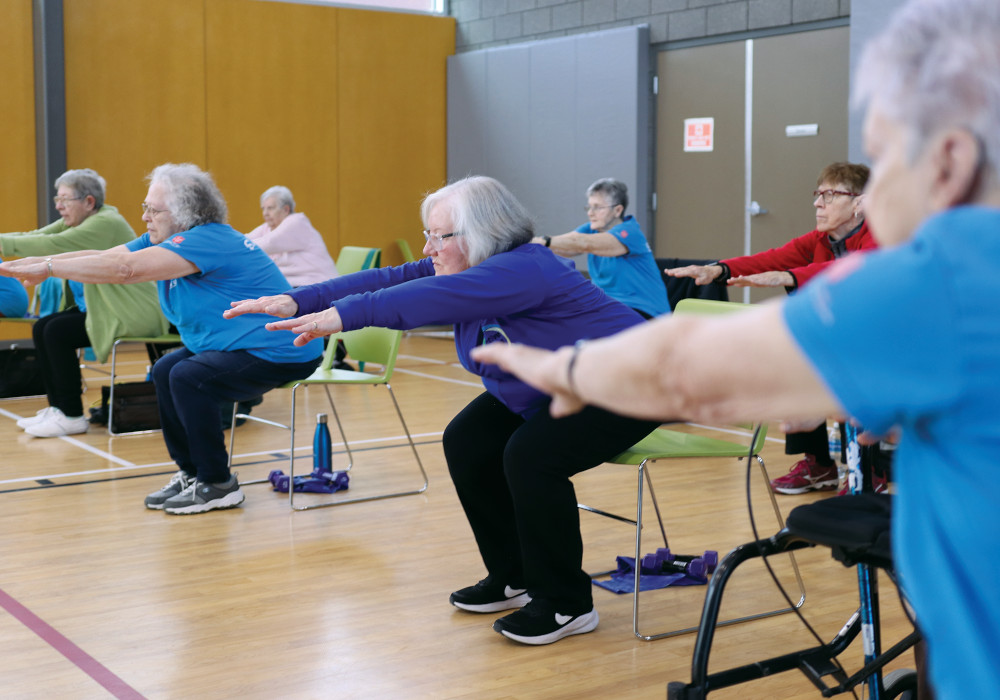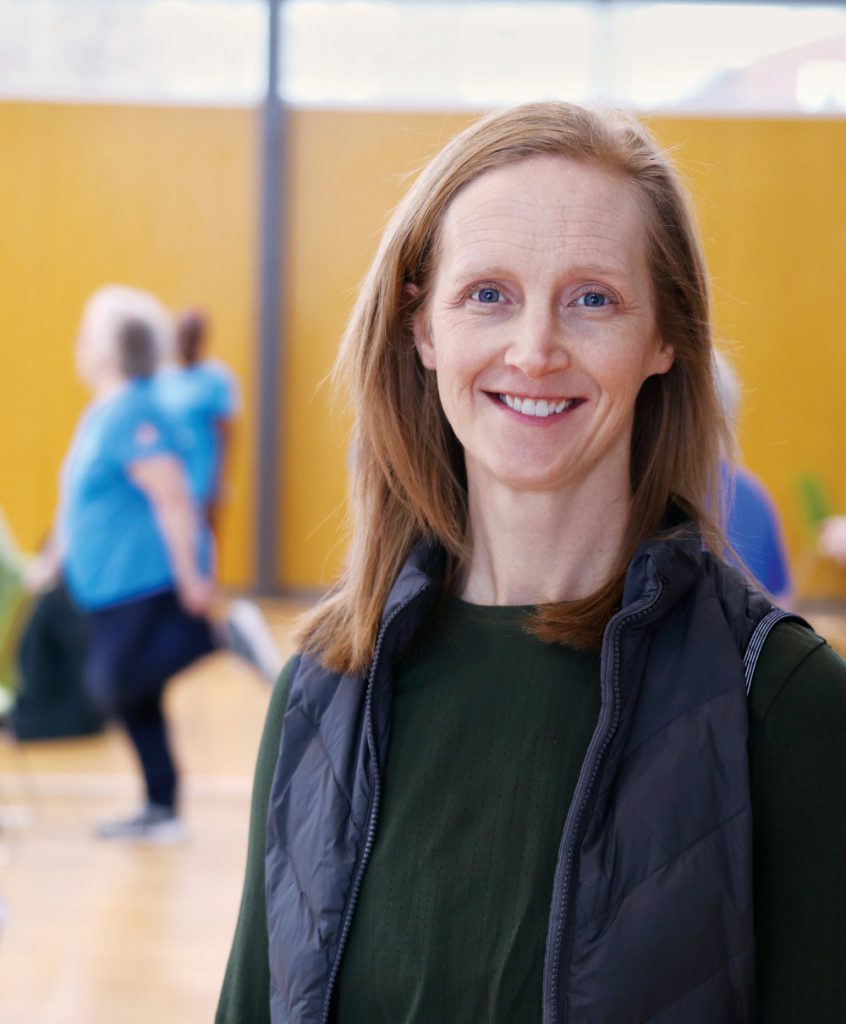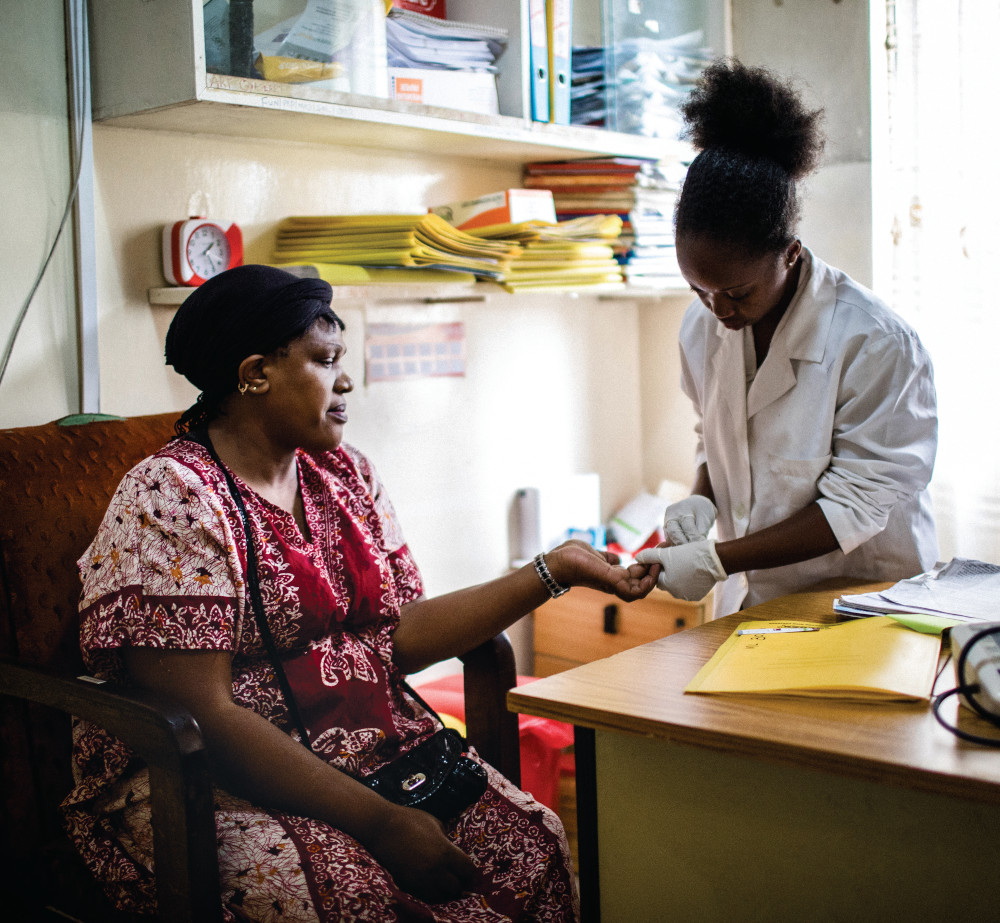

The Rady Faculty of Health Sciences will launch a new college in the spring of 2025, recognizing the growth and prominence of UM’s dedicated work in global and public health.
The new College of Community and Global Health will be the sixth college encompassed by the Rady Faculty, joining the colleges of dentistry, medicine, nursing, pharmacy and rehabilitation sciences.
“The new college is going to help shift the needle in addressing health equity gaps in Manitoba, in Canada and in other countries,” says Dr. Michelle Driedger, professor and head of the department of community health sciences in the Max Rady College of Medicine.
“It will allow us to provide new programs, gain greater exposure for our research, and create new and innovative partnerships.”
The department of community health sciences will transition into the new standalone college. The search for a college dean is underway.
Dr. Kathryn Sibley, a Canada Research Chair focusing on integrated knowledge translation and professor of community health sciences, welcomes the depart-ment’s new status as a college. “It recognizes the impact of our work in communities near and far,” she says.
Sibley is researching the delivery of evidence-based exercise programs designed to prevent falls in older adults.
“Public health focuses on the health of communities and populations,” she says. “It can include initiatives for large populations, like some of the projects that UM partners on in India and Kenya.
“It can also include preventive programs at the community level, like encouraging older Manitobans to get together near their homes for exercise that supports well-being and maintaining function.”
With over 170 faculty members (including those based at the Institute for Global Public Health in the Rady Faculty) and about 125 graduate students, the department-turned-college operates a robust research enterprise. In 2024, it brought in more than $53 million in research funding.
The new college will include the Manitoba Centre for Health Policy, the research unit that maintains, on behalf of the province, the Manitoba Population Research Data Repository – one of the richest data mines in the world for population-based research.
“We’re a really big department doing a lot of different things. As a college, we’ll have even more opportunity to grow,” Driedger says.
The new college will continue the four major education programs in community health sciences: undergraduate medical education, graduate studies, a postgraduate residency program in public health and preventive medicine, and the bachelor of human ecology in family social sciences. There are also plans to expand.
Driedger hopes to see a bachelor’s degree in community health sciences introduced in the next couple of years. The proposed program will help prepare students for the college’s renowned graduate programs.
“The bachelor’s program will give learners exposure to community and global public health early on and enable them to learn about different career pathways,” says Marissa Becker [MD/99], professor of community health sciences and director of technical collaborations at the Institute for Global Public Health.
Currently, because there isn’t a bachelor’s program, students enter the graduate programs from various educational backgrounds. A new undergraduate program will give students a common foundation, Driedger says. A new pre-master’s program for non-health sciences graduates is also being considered.
Another new initiative the college plans to offer is an innovative joint graduate degree program with partner universities in India and Kenya.
“Rather than students coming to UM to do all of their training, they could complete some of it in their home country, so they can make an impact on the ground over there,” Driedger says.
The idea of training students where they live could also be integrated into the new bachelor of community health sciences for learners in northern and remote communities, the professor says.
With the college being envisioned from the ground up, Driedger believes it’s in a perfect position to build reconciliation, social justice, anti-racism and equity initiatives and policies into its foundation.
“I hope this college becomes a big social justice advocate,” she says.
Other Canadian universities also have schools or centres for community and global public health, but Driedger and Becker say what sets UM apart is its approach to research.
“We try to ensure that the research component is embedded within government or community public health programs, rather than being a standalone effort, so the research and program can work together toward a shared public health goal,” Becker says.
“This model ensures that the research helps to optimize and sustain health services.”
Driedger believes the creation of the new college will elevate the work the department has been doing and give greater exposure to its research, training and service activity.
“It will shine a brighter light on our activities,” Driedger says. “I just anticipate it’s going to continue to grow, grow, grow, and people will see the many opportunities at the college.”
Global Health Gathering
The Institute for Global Public Health in the Rady Faculty of Health Sciences brought its partners from around the world to Winnipeg for a conference in June.
The theme of the gathering was the role of academia in advancing global health equity.
About 130 people from more than 20 countries attended the two-day event. They included representatives from non-governmental agencies, community-based organizations, 15 research and academic institutions, and activists.
Speakers and panel discussions addressed topics ranging from HIV and sexually transmitted infections to community leadership and mobilization.

James Blanchard [B.Sc.(Med.)/86, MD/86], professor of community health sciences and executive director of the Institute for Global Public Health, said academics can make a large-scale impact on global health by getting out of their silos and collaborating.
“One of the things we’ve done at UM is develop a model for working closely with our partners,” said Blanchard, UM Canada Research Chair in epidemiology and global public health.
“Because academic institutions have a wide range of skill sets, we’ve developed an approach of becoming a technical partner.”
With a current focus on Kenya, Nigeria, India, Pakistan, Ukraine and Peru, as well as Manitoba, the institute works with partners in each location to strengthen evidence-informed public health programs.
Gathering and analyzing evidence is another area in which UM contributes expertise. Academics from UM are assisting in the development of a data sciences centre at King George’s Medical University (KGMU) in Lucknow, India, modelled after UM’s Manitoba Centre for Health Policy.
Dr. Soniya Nityanand, vice-chancellor and professor of clinical hematology at the Indian university, said its 4,500-bed hospital is a goldmine of data, and UM is helping KGMU to capture it.
“We have a very good and robust collaboration with the University of Manitoba,” Nityanand said.
BY MATTHEW KRUCHAK
